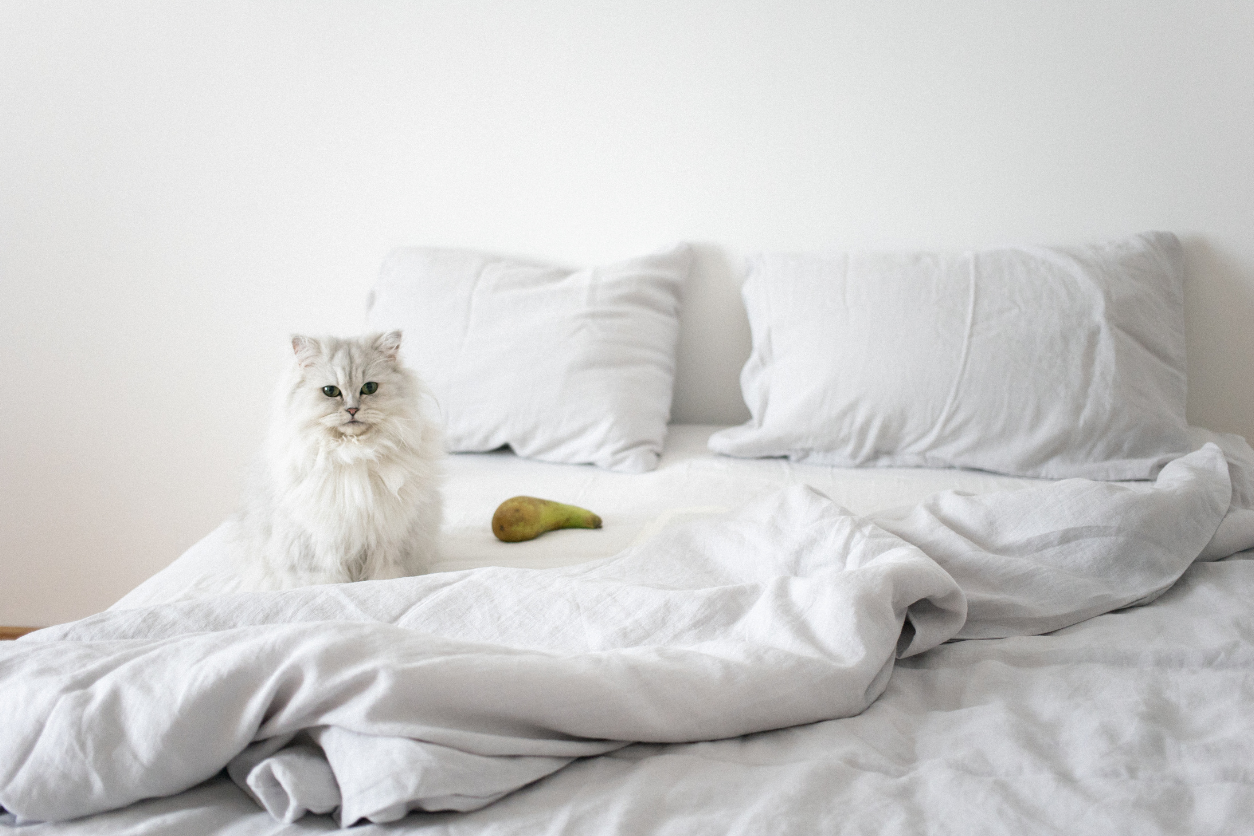Why Is My Cat Peeing on My Bed? Vet-Recommended Reasons and Solutions

It’s a common yet frustrating problem that many cat owners have faced: you walk into your bedroom and discover your cat has peed on your bed. Not only is it unpleasant and puzzling, but it can also strain the bond between you and your feline friend. So, why is your cat peeing on your bed, and what can you do about it? In this blog post, we’ll explore the vet-recommended reasons behind this behavior and provide practical solutions to help you and your cat find a resolution.
Cats are generally known for their cleanliness and litter box habits, so when they urinate outside the litter box, it’s often a sign that something is amiss. By understanding the potential causes and addressing them effectively, you can prevent further incidents and maintain a happy and harmonious relationship with your furry companion.
Why Do Cats Pee on Beds?
Medical Problems
Cats may urinate outside the litter box due to an underlying medical issue. Conditions such as urinary tract infections, kidney disease, diabetes, and bladder stones can cause discomfort and lead to inappropriate urination. If your cat suddenly starts peeing in unusual places, it’s crucial to rule out medical causes through a vet visit. They may require a cat kidney supplement or necessary medication.
Stress and Anxiety
Cats are sensitive creatures, and changes in their environment or routine can trigger stress or anxiety. Common stressors include the introduction of a new pet, a change in the household, or a disruption in their usual litter box setup.
Issues related to the litter box itself can cause a cat to seek other places to urinate. These issues might include a dirty or unappealing litter box, a location that’s difficult for the cat to access, or an inappropriate type of cat litter. Stress-induced urination is a way for cats to cope with their emotional turmoil.
Territory Marking
Cats are territorial animals, and they may urinate on your bed as a way of marking their territory. This is more common in unspayed or unneutered cats and can be quickly triggered by the presence of other animals or changes in the household. Behavioral issues may be more challenging to address and may require professional guidance.
Solutions to Stop Your Cat from Peeing on the Bed
Consult a Veterinarian
If you suspect a medical issue, consult a veterinarian promptly. They can perform a thorough examination, run necessary tests, and provide a diagnosis and treatment plan if needed. Addressing any underlying health problems is the first step in resolving inappropriate urination.
Maintain a Clean Litter Box
Make sure to keep the litter box clean and fresh. Scoop waste daily, change the litter regularly, and wash the litter box with mild, unscented soap. Cats are more likely to use a clean and inviting litter box.
Place the litter box in a quiet, accessible, and low-traffic area. Cats prefer privacy and may avoid a litter box located in a noisy or heavily frequented spot.
Consider the Litter Type
Experiment with different types of cat litter to find the one your cat prefers. Some cats are particular about the texture and scent of the litter they use.
Help Reduce Stress
If stress or anxiety is the cause of urination outside the litter box, work on minimizing stressors in your cat’s environment. Provide a safe and comfortable space, engage in interactive play, and offer enrichment activities.
Combat Territory Marking
For territory marking, spaying or neutering your cat is often an effective solution. Additionally, maintaining a clean environment and reducing interactions with outdoor or neighboring cats can discourage marking behavior.
Consult with a veterinary behaviorist or professional cat trainer. They can provide guidance on modifying your cat’s behavior and addressing specific issues.
Clean and Neutralize Odors
Thoroughly clean any soiled areas to remove the scent that may attract your cat to repeat the behavior. Use enzymatic cleaners designed to neutralize urine odors.
Use Positive Reinforcement
Reward your cat for using the litter box correctly. Positive reinforcement with treats or praise can encourage proper litter box behavior.
Make Gradual Changes
If you need to make changes in your cat’s environment or routine, do so gradually. This can help reduce stress and anxiety associated with change.
Final Thoughts
Understanding why your cat is peeing on your bed is the first step in addressing this issue effectively. By considering the potential causes, consulting with a veterinarian, and implementing the vet-recommended solutions, you can help your cat overcome this problem and maintain a harmonious relationship. Remember, patience and persistence are key in resolving inappropriate urination, and with the right approach, you and your cat can enjoy a comfortable and happy coexistence.
Your Pet’s Best Interest, Always
At Pet Institute, we take pet care seriously. We're dedicated to transparency, impartiality, and the well-being of your pets in every article, review, and recommendation we provide. Our unwavering commitment to these principles ensures that you, our valued reader, always receive reliable and unbiased information. Let us be your trusted guide in the world of pet care and companionship.